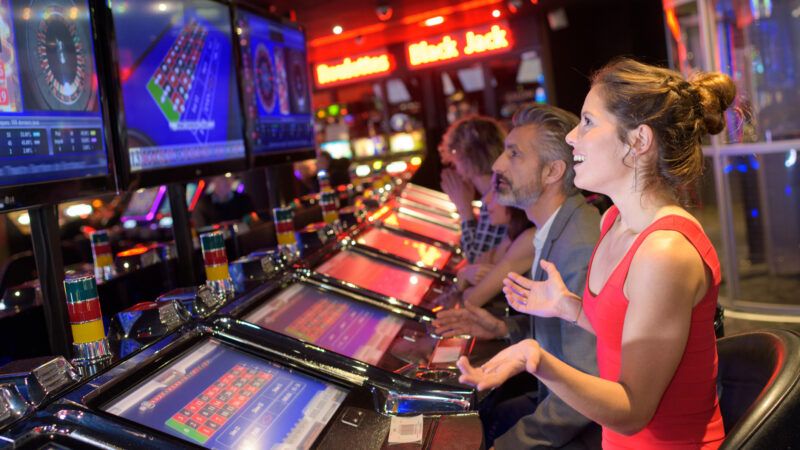Virginia Says You Can Gamble On This, But Not That
Casinos, sports betting, and even online lottery sales are okay. Electronic skill games have no such luck.

Come Thursday, Virginians will be able to bet on sports from their phones, but not on electronic skill games at gas stations.
Once casinos open within a few years' time, people will be able to play video slots at the casino but not at the truck stop in the next town over.
Meanwhile, a "family entertainment center" can put the same games out and offer tickets that can be redeemed for prizes at ridiculous markups, but the bar next door can't put the same game out unless it rebrands itself as a family venue.
Of course, Virginians will still be able to gamble on a state-run scratch-off or lottery ticket bought at a convenience store.
If that sounds like a confusing standard, that's because it is. Even some Virginia legislators can't figure out what's legal and what isn't.
"If you read the bill, it is so vague and ambiguous to the point where I can't tell who's legal or not legal," State Sen. Bill Stanley (R–Franklin County), told Reason. "The law is so poorly written that its enforceability is suspect at best."
For decades, electronic skill games—any electronic gambling game that does not rely sheerly on chance—have been unregulated in Virginia. For the past year, they were regulated and taxed as part of a one-year deal "that allowed the state to collect more than $100 million in new taxes on the machines while protecting income for small businesses that house them," The Richmond Times-Dispatch reported.
The new law Virginia passed seeks to permanently clarify what kind of gambling is allowed (and where) going forward. As Stanley explained it, the law bans skill games statewide, except at family entertainment centers. An establishment must advertise itself as a place for kids and families to meet that definition and get the exemption. That's why Dave & Buster's and Chuck E. Cheese aren't sweating the ban on skill games.
Stanley is also a lawyer and is representing truck stop owner and former NASCAR driver Hermie Sadler in a suit seeking to overturn the ban on First Amendment grounds.
What does free speech have to do with a ban on a certain type of gambling? "[Sadler] … would have to conform his speech to say 'Come to the Sadler Truck Stop, a family entertainment center.' So the government is forcing him to conform his speech in order for him to transact an otherwise lawful business," says Stanley.
On Monday, a separate legal complaint was filed by the Asian American Business Owners Association, alleging that the ban disproportionately harms businesses owned and frequented by racial minorities. State Sen. Joe Morrissey (D–Richmond) cited discrimination as a reason to undo the ban.
Regardless of the legal approach to challenging the ban, the gist of these suits is the same: The Virginia government is picking winners and losers in the gambling world. Legislators may think the games are low-class (one called them "unseemly" and "sleazy"), crowding out the state lottery (Stanley says evidence shows otherwise), or preying on low-income Virginians (what do they think the state lottery does?), but there's no moral or economic reason that electronic skill games should be banned if other forms of gambling get to thrive.
Stanley voted against the 2020 bill to allow five casinos to open in Virginia, but he now says, "If you're going to allow casino gambling…you better just rip the band-aid off and [say] all gambling is okay, and it should be available to all people who choose to spend their extra money that way, regardless of their socioeconomic status or location geographically in Virginia. I mean, it's just not fair."
Of course, this double standard is not unique to Virginia. In Georgia, for example, people can play the lottery but nearly every other form of gambling is illegal, even poker games played among friends in private. Kentuckians can play the lottery and bet on horses but not on other sports. Californians can go to tribal casinos, bet on horses, and play daily fantasy sports, but can't bet on sports in other ways.
Hopefully, legislators in every state will soon realize all gambling should be treated the same and stop trying to pick the right way for people to spend (or earn) their money. But don't bet on it.


Show Comments (12)